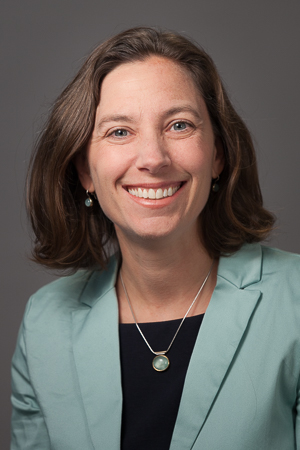Faculty Profile
Amy Wlodarski
Professor of Music; Charles A. Dana Chair (2005)Contact Information
Weiss Center for the Arts
717-245-1333
Bio
An award-winning scholar and teacher, Prof. Wlodarski's research explores the complex expressive relationships between Jewish music, trauma, memory, and the tragedies of World War II and the Holocaust. Her two monographs--Musical Witness and Holocaust Representation (2015) and George Rochberg, American Composer (2019)--have both received accolades from leading musicological societies. In addition to written scholarship, Prof. Wlodarski regularly presents programs for major musical institutions, including the Los Angeles Opera, the Philadelphia Orchestra, the New York Philharmonic, and the Violins of Hope Exhibition, and her work has been supported by the Fulbright Commission, the National Endowment for the Humanities, and Harvard University. As an educator, she specializes in courses that explore the aesthetics, ethics, and politics of creative practices in music ranging from 1750 to the present and conducts the Dickinson College Choir. Prof. Wlodarski was selected as 2024 Guggenheim Fellow. During her fellowship year, she is writing a history of the international reception of Viktor Ullmann's "Der Kaiser von Atlantis," a chamber opera written in Ghetto Terezín in 1944.
Education
- B.A., Middlebury College, 1997
- M.A., Eastman School of Music, 2001
- Ph.D., 2006
- Faculty Resident Director, Dickinson in Italy, 2022-2024
Awards
- Dickinson Award for Distinguished Teaching, 2010-11
- Ganoe Award for Inspirational Teaching, 2014-15
2025-2026 Academic Year
Fall 2025
MUEN 009 College Choir
May Not Be Audited.Each year, the College Choir performs two concerts featuring a diverse and moving range of international choral music that reflects Dickinson’s global mindset and intercultural practice. In recent years, the choir has sung in over thirteen languages—including Arabic, Hebrew, Chinese, Japanese, and Korean—and presented innovative programs to address current social and political concerns. The choir also regularly collaborates with other student ensembles—such as the Dickinson Orchestra, the Jazz Ensemble, and the Dance Theater Group—as well as professional institutions in our area. All students—regardless of major—are encouraged to contact the director for an audition.
FYSM 100 First-Year Seminar
The First-Year Seminar (FYS) introduces students to Dickinson as a "community of inquiry" by developing habits of mind essential to liberal learning. Through the study of a compelling issue or broad topic chosen by their faculty member, students will:
- Critically analyze information and ideas
- Examine issues from multiple perspectives
- Discuss, debate and defend ideas, including one's own views, with clarity and reason
- Develop discernment, facility and ethical responsibility in using information, and
- Create clear academic writing
The small group seminar format of this course promotes discussion and interaction among students and their professor. In addition, the professor serves as students' initial academic advisor. This course does not duplicate in content any other course in the curriculum and may not be used to fulfill any other graduation requirement.
JDST 316 Music and Politics
Cross-listed with GRMN 350-02 and MUAC 354-01. Permission of Instructor Required. The boundaries of this course are narrow in space-Germany, Austria, and the Czech Republic-but wide in the types of political topics that we will discuss: hero worship, nationalism, ethnic/racial definitions of a Volk, anti-Semitism, multimedia productions, genocide, political critique, censorship, and aesthetic debates. Students will also have an opportunity to explore a musical-political topic of their own through a short research unit.
GRMN 350 Music and Politics
Cross-listed with JDST 316-01 and MUAC 354-01. Permission of Instructor Required. The boundaries of this course are narrow in space-Germany, Austria, and the Czech Republic-but wide in the types of political topics that we will discuss: hero worship, nationalism, ethnic/racial definitions of a Volk, anti-Semitism, multimedia productions, genocide, political critique, censorship, and aesthetic debates. Students will also have an opportunity to explore a musical-political topic of their own through a short research unit.
MUAC 354 Music and Politics
Cross-listed with GRMN 350-02 and JDST 316-01. Permission of Instructor Required.
Spring 2026
MUEN 009 College Choir
May Not Be Audited.Each year, the College Choir performs two concerts featuring a diverse and moving range of international choral music that reflects Dickinson’s global mindset and intercultural practice. In recent years, the choir has sung in over thirteen languages—including Arabic, Hebrew, Chinese, Japanese, and Korean—and presented innovative programs to address current social and political concerns. The choir also regularly collaborates with other student ensembles—such as the Dickinson Orchestra, the Jazz Ensemble, and the Dance Theater Group—as well as professional institutions in our area. All students—regardless of major—are encouraged to contact the director for an audition.
MUAC 102 The Listening Mind
When we think about our response to music, often we describe its emotional and affective impact on our lives—in short, how it makes us feel. This course asks a different question: how do the languages of music provoke our minds by prompting intellectual questions, revealing cultural dynamics, and driving creative inquiry? How have composers, performers, and listeners made sense of the sonic environments around them, and what do their stories tells us about their aesthetic and ethical worldviews? Drawing from a wide range of disciplinary fields and historical examples from 1750 to the present, this course asks students to explore what music can reveal about society—its shifting cultural practices and biases—and our own relationships with the sounds we experience in our daily lives. The ability to read music is not required for this course and non-musicians are welcome and encouraged.
